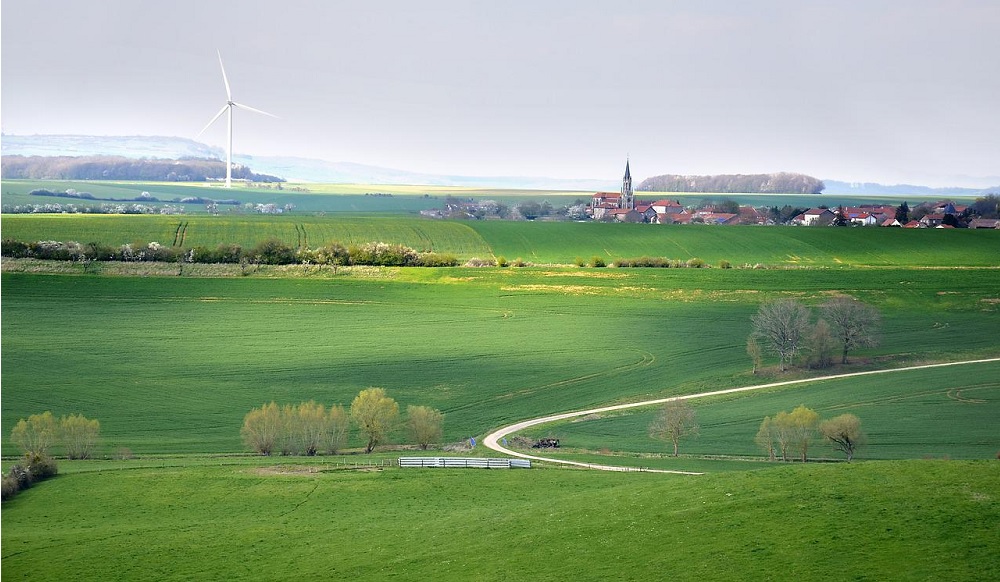
With a rapidly growing global population and a similarly rapid deforestation, it is more important than ever to conserve our environment. World Travel Guides is dedicating to supporting eco-friendly and sustainable travel.
You don’t have to give up your entire lifestyle to make a difference. Small changes in the way you think and act can have a big impact over your lifetime.
Here are some easy tips for reducing your carbon footprint during your next vacation.
#1. Book trips with an ecologically friendly tour company
Many of the tours featured in World Travel Guides reviews are organized by eco-friendly companies. These are organizations that aim to benefit the environment rather than cause pollution and damage the planet.
For example, check out our whale watching tours in Maui. You can opt to join a cruise operated by the Pacific Whale Foundation. This is a not-for-profit corporation dedicated to ocean research and conservation programs.
Check that the tour companies you use during your vacation are dedicated to sustainable tourism. An easy way to do this is to check that they are certified by the Travelife certification program.
#2. Encourage sustainability in your TripAdvisor and Google reviews
While on vacation, you will stay in hotels, eat in restaurants, and visit tourist attractions. These businesses and organizations encourage you to provide them with reviews on social media to promote their services.
You can use your reviews to encourage sustainable tourism. Don’t overly criticize corporations you feel are generating too much waste. Instead, take the time to write a balanced review that points out the good things about their service but then highlights their failure to recycle glass or their use of plastic straws.
Don’t rate them 1 star, because that will get you ignored. Instead, knock off a star and say you’d have awarded it if they chose to be more sustainable. This encourages tourism businesses to consider increasing their sustainability.
If you also point out in your review that they could save money by being more sustainable, this may help even more. For example, in sunny countries, recommend they acquire solar panels to reduce their electricity bill.
This can have an invisible butterfly effect. Imagine if someone looking for a hotel reads your review and then considers whether solar panels are worth it for their home for the first time. Or maybe another tourist will simply be encouraged to become more eco-friendly during their own vacation. As the adage goes: Be the change you want to see in the world.

#3. Minimize gas consumption
This can be difficult on vacation but, where possible, use transportation that consumes less gasoline. So, choose public transport over a car. Consider hiking and tour cycling rather than taking that epic road trip.
Enjoy a cycling or walking tour of Paris rather than a bus tour. Instead of hiring a jet ski or power boat during your vacation in Costa Rica, consider kayaking, paddleboarding, or snorkeling at the beach. Not only are these options better for the environment, they are also better for your health.
As mentioned above, when choosing a tour, aim to book with an ecologically responsible tour operator. For example, if you’re in Brisbane you can enjoy a Moreton Island tour, visit the Eco Center, and learn about the ecology of the area from an Eco Ranger.
When you book your excursion through a green travel corporation, they will help ensure that your gas consumption is minimized.
#4. Lower electricity consumption
Just because you aren’t paying the electricity bill at your hotel or vacation rental that isn’t a good reason to leave all the lights on all night. Similarly, don’t leave the TV playing foreign language programs you can’t understand just for background noise and ambience.
If you use battery powered electronic devices, ensure you use rechargeable batteries. And consider purchasing a portable solar charger to charge your smartphone and other devices.
If you plan to go camping, invest in a high-quality, portable solar oven. These clever devices can cook your food at no cost to yourself or the environment.

#5. Make use of refillable bottles
Hydration is essential while hiking, cross-country skiing, or exploring hot regions. However, it is wasteful to purchase bottled water and throw away the plastic bottle. Even if you plan to recycle the bottle, it is still better if you didn’t use it in the first place. Consider purchasing a refillable drinks bottle that you can refill at your hotel or other clean water sources. There are also many backpacks with a built-in hydration bladder that are refillable.
In some areas, you can use the RefillMyBottle app to locate local water sources. Alternatively, scour backpacker forums online or TripAdvisor’s discussion pages. Note that in some countries you may see BYOB businesses. These are stores where you can take your old bottle shampoo or shower gel bottle and get a refill rather than buying a new bottle of shampoo and throwing away the empty bottle.
#6. Get reusable bags
Instead of accepting a new plastic or paper bag from the cashier each time you go to the store, invest in a lightweight cotton or jute bag for general grocery shopping.
Alternatively, many stores offer a stronger plastic bag that is reusable and made from recycled plastic. These should be used over and over, even if they become a little creased over time. The more times you reuse them, the better it is for the environment.
Refuse the free plastic bags from souvenir shops with their fancy store logo. If they insist, write a review about the store on your social media and complain about this. Knock a single point off their rating and say you’d have left it on if they’d not insisted that you take their bag.

#7. Choose products that use less packaging or are marked eco-friendly
Be more aware of the packaging used for the products you buy while on vacation or when planning your vacation. Select foods that are marked as grown in ecologically-friendly ways. Ensure as many products as possible are packaged in recycled materials and avoid needless extra packaging. If you must purchase a product that it over-packaged, write a review about the product and complain about the packaging.
It is now possible to buy toiletries such as shampoo and soap in more eco-friendly packaging. Solid shampoos and soaps are often vegan-approved and cruelty-free, and they don’t come in a disposable bottle. If you enjoy swimming or sunbathing on vacation, select an eco-friendly sunblock that is packaged in a biodegradable tube or recyclable metal tin.
#8. Cut down your own disposable plastic use
Whenever you are traveling, give more thought to the impact of your decisions upon the local wildlife. The thoughtless inappropriate disposal of trash can lead to ecological disaster for the local critters.
If you’re headed to the beach for a picnic, don’t wrap your food in plastic wrap or place it in plastic bags. Instead, make use of reusable plastic boxes that keep your food both fresh and unsquashed. Avoid 6-packs of soda or beer if they are connected by plastic rings. Such rings are dangerous to marine wildlife. If you cannot find a 6 pack without those plastic rings, remove them before you set off for the shore.
Use regular metal knifes or high-quality plastic knives for your picnic. Avoid any single-use products, such as plastic cups and straws. Treat your kids with a novelty reusable straw featuring their favorite Disney cartoon character. If beach-side food outlets attempt to provide you with disposable knives and forks, refuse them and use your own. And don’t forget to comment about this in a review on your social media.

#9. Obviously, recycle!
Research into local recycling facilities at your destination before you travel. During your vacation, rinse out plastic and glass containers and collect them together with other recyclable packaging and single-use metal and plastic items. At the end of your stay, ensure these are properly deposited into recycling bins. Ideally, your hotel will provide recycling facilities. If they do not, you can mention this fact in your review and alter their rating accordingly.
#10. Think outside the regular recycling box
Well done for putting some thought into becoming a more sustainable traveler. But you can still do more.
If you are truly invested in improving the environment, consider volunteering. You can join an ecological mission and spend your vacations cleaning up the planet. However, you deserve your vacation. An ecological project may be too much of a commitment, especially if you have young kids to entertain. An easy alternative is to donate just 10 minutes of your time each day of your vacation.
After spending your day beside the pool or on the beach, you can spend just 10 minutes gathering up any trash abandoned by other holidaymakers. In this way, you can protect the wildlife and ensure that any recyclable materials are treated appropriately.
You could even approach other tourists and ask them if they have any recyclable trash you can help them dispose of. By doing this, you are showing them how to live in a more sustainable and eco-friendly manner. You may even encourage them to follow in your carbon-less footprint on their future vacations. You could be the butterfly that flaps its wings and spreads a green way across the globe.



